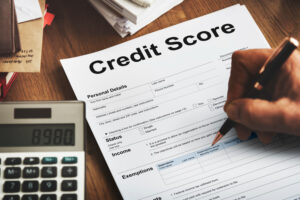Living in the UAE means dealing with banks every day. Whether you want a car loan, home loan, or credit card, your Credit Score matters a lot. Many people don’t understand how the Credit Score System in the UAE works. This guide will help you understand everything in simple words.
What is the UAE Credit Score System?
The Credit Score System in the UAE is run by Al Etihad Credit Bureau (AECB). Think of it as your financial report card. Your AECB credit score is a three-digit number ranging between 300 and 900. The higher your score, the better your chances of getting loans.
This number tells banks how good you are at paying back money. Banks use this score to decide if they should give you a loan or credit card.
How Does the Credit Score Work?
A credit score of more than 700 is generally recognised as a good credit score in the UAE. Here’s what different scores mean:
• 800-900: Excellent score: Banks will love you
• 700-799: Good score: You’ll get most loans approved
• 600-699: Fair score: Some banks might say yes
• 300-599: Poor score – Very hard to get loans
Anything below 400 is not good, and your applications for loans and credit cards will likely not be entertained by any bank.
How Debt Impacts Your AECB Score
Your debts have a huge impact on your Credit Score. Here are the main ways debt affects your score:
Payment History (35% of Your Score)
Payment history is the single most significant factor in the Al Etihad Credit Bureau (AECB) credit scoring model, accounting for approximately 35 per cent of your overall score. This is the most important part.
When you pay your credit card bills on time, your score goes up. When you miss payments, your score goes down fast. Even one late payment can hurt your score for months.
Credit Card Usage
Using too much of your credit card limit hurts your score. If your credit card limit is AED 10,000, try not to use more than AED 3,000. This shows banks that you can control your spending.
Paying off credit card bills in full is always a good way to improve a bad credit score. Try to pay the full amount every month, not just the minimum payment.
Number of Credit Cards and Loans
Both experts confirmed that applying for multiple credit cards or loans can damage your credit score. Don’t apply for many credit cards at once. Each application can lower your score.
Length of Credit History
Banks like to see that you’ve been using credit for a long time. If you have an old credit card with good payment history, keep it. Closing old accounts can hurt your score.
What Information Does AECB Collect?
A credit report is a document that includes your personal identity information, details of your credit cards, loans, and other credit facilities, along with your payment and bounced cheque history.
The AECB knows about:
• All your credit cards
• Personal loans and car loans
• Home loans
• Any bounced cheques
• Payment delays
Final Thoughts
Understanding the Credit Score System in the UAE is very important for your financial future. Your Credit Score affects almost every big purchase you’ll make in the UAE


No Comments